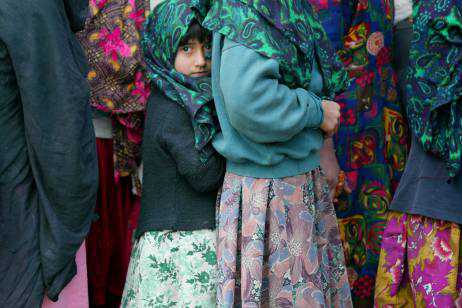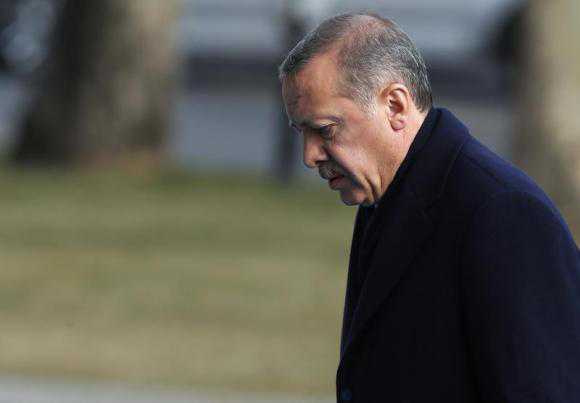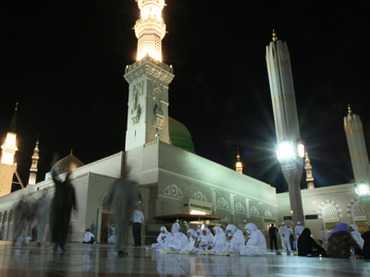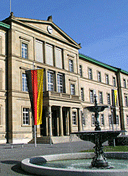The Al Arabiya Institute for Studies compared Islamists in Egypt and Turkey. (File)

The Al Arabiya Institute for Studies examined 15 points of conversion and difference between Egypt under Muslim Brotherhood rule, and Turkey under the Justice and Development Party (AK).
1. Turkey’s Islamists have long participated in political life, co-governing the country in the mid-1970s and mid-1990s, and ruling on their own since 2002. Egypt’s Brotherhood were in opposition since the establishment of the group, until the election of Mohamed Mursi as president last year.
2. Turkey’s Islamists, despite being oppressed, never committed violence against the state. This excludes the experience of the Turkish Hezbollah, an extremist organization established by the intelligence services in the early 1990s against the Kurdistan Workers Party (PKK), and dissolved at the end of the 1990s with it leaders’ imprisonment. After coming to power, the AK made some serious judiciary reforms, resulting in the release of thousands of Turkish Hezbollah detainees, whose party was divided in two, with one group following the AK, and the other operating undercover with its old name, as a Sunni party inspired by the Iranian experience of the late Ayatollah Khomeini. Egypt’s Islamists used violence against the state, and against those who opposed them before and after they gained power.
3. Turkish Prime Minister Recep Tayyip Erdogan’s government entered into conflict with the army and the constitutional court six years after coming to power. Egypt’s Islamists started their governing days with an open war against the judiciary, army, military and society.
4. Turkey’s Islamists embedded their cadres and commanders in the army, police, security forces and judiciary, as a first step on the path to key positions. This represents long-term planning. However, to date there are no prominent Brotherhood loyalists among Egypt’s army or security forces.
5. Egypt’s Islamists possess a network of businesses and media, but do not compare with Turkish Islamists’ economic and media power.
6. Turkey’s Islamists are more flexible, liberal and pragmatic than Egypt’s.
7. Turkey’s Islamists have neo-Ottoman, nationalist and Islamist ambitions, as well as a regional and international network of allies based on economic and military ties with Israel, the United States, Russia, China and the European Union. Egypt’s Brotherhood seek the Islamization of the state at any cost.
8. The nationalist side of Turkey’s Islamists is very strong, and the highest interests of the state are a priority, to the point that the Islamists are ready to partner with seculars on the Kurdish, Armenian and Cypriot issues. Turkish Islamists are trying to revive the nationalistic roots of Turkmen descendants in Iraq and Syria, in the service of Turkey’s interests. This was manifested during a Syrian Turkmen conference in Istanbul in Dec. 2012, attended by Turkish Foreign Minister Ahmet Davutoglu and Ershad Hormozlu, an Iraqi Turkmen and a key advisor to Turkish President Abdullah Gul. Egyptian Islamists have an “us against them” approach, of believers versus disbelievers, and of rebels versus remnants of the ousted regime.
9. Erdogan’s government commits all types of abuses against freedom of expression, undermining and destroying the media, but in a lawful manner. Reporters Without Borders has described Turkey as “the world’s biggest prison for journalists.” Egypt’s Islamists resort to intimidation, threats, arson, destruction, and even assassination.
10. Turkey’s Islamists have infiltrated regional opposition groups, especially Sunni ones. It is more accurate to say that the Brotherhood in Syria and Iraq are associated with Turkey rather than Egypt, despite the fact that the Brotherhood in Egypt is supposed to be the global reference for Arab Brotherhood groups. Turkey’s Islamists succeeded in controlling the Syrian regime before the revolution, and control both the revolution and the Syrian opposition, even contributing to its Islamization. Egypt’s Islamists lack the experience and culture to manage a state. Turkey’s Islamists have earned a reputation for being balanced and moderate, in harmony with secularism and the civil state, compared with the stubbornness and rigidity of Egypt’s Islamists, who are fighting the state and society.
11. Turkey’s Islamists did not make adversity to Israel their first priority when they assumed power, until they cut ties with it. Egypt’s Islamists do not camouflage their intention to rethink Cairo’s international and regional relations, including the peace treaty with Israel, according to their ideology, not the national interest.
12. Turkey’s and Egypt’s Islamists share the idea of a hidden agenda, although they do not agree on the tools or methods to be used in order to impose this agenda, which aims at remodeling the state under their slogan “Islam is the solution.”
13. Despite numerous military coups (1960, 1971, 1980 and 1997), Turkish political Islam grew in a pseudo-democratic environment. Egyptian political Islam grew under a long history of a state under emergency law. This has nurtured the civic approach to solving issues among Turkey’s Islamists, instead of the harsh confrontation and street agitation adopted by Egypt’s Islamists since the revolution. Turkey’s Islamists could have brought millions to the streets when they were threatened by seculars through a lawsuit at the constitutional court against the AK, but they refrained from doing so to avoid a state crisis, favoring the national interest over party ideology.
14. Turkey’s Islamists did not assume power by revolution, and did not betray their allies. The Brotherhood did not adhere to Egypt’s revolution in its early days, then stole the show, broke its promises, betrayed its revolutionary comrades, and assumed power unilaterally by force and trickery. Turkey’s Islamists ruled unilaterally through their economic development projects.
15. Turkey does not have an “office of the high adviser,” which in Egypt controls the president and prime minister.
Prepared by Hoshnek Oussi for the Al Arabiya Institute for Studies





